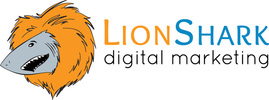1. Targeted Languages
We heard about this tip from a WordStream article a couple of months ago, and we’ve been using it ever since with great results! When you select your settings for a new campaign, the default language that’s chosen is English, and most people (us included) typically just leave that as is and move onto other, more customizable settings. However, what we learned is that by doing this, we were actually excluding a segment of the population that might have really benefited from seeing our ads – bilingual internet users. You see, if someone speaks both Spanish and English fluently, they may have their Google language settings set to Spanish. This means that if you just had your language settings set to English, you would miss the opportunity to serve them your ads. By simply checking the box for Spanish (or any other language that would be a popular second language for your target audience) you can have your ads display to these people in English, which they understand perfectly well. Boom – minimal work and a whole new audience is unlocked! This is probably the simplest and most effective hack we’ve found in a long time!
2. Target CPA Bidding
Instead of manually setting bids, there are a number of automating bidding options. If your site meets the criteria to use the conversion optimizer, this is a great bidding strategy to use but you can take it one step further by using target CPA (cost per acquisition) bidding. This bid strategy allows you to tell Google what a conversion is worth to your business and let their sophisticated tools make the adjustments needed with each ad auction to ensure that your clicks will be profitable. Just like the first hack, this is simply a setting that you have to enable. After turning on target CPA bidding analyze your performance data and to determine whether it’s working on is or needs to be tweaked in any way.
3. Structured Snippet Extensions
Structured snippets are a really versatile ad extension option that allows you to tell searchers what types of things you offer. You simply select a category (brands, models, styles, types, etc.) from the available list and then write in the options that you’d like searchers to see. They’re very easy to set up and just like any other ad extension, they increase the size of your ads so that you can steal valuable real estate away from your competitors on the search engine results pages (SERPs).
4. Dynamic Ads
Dynamic Keyword Insertion (DKI) allows you to insert an individual’s search query into your ad. Having the specific query that someone used to conduct their search in your ad dramatically increases the relevancy of the ad, thereby increasing your click-through-rate (CTR). We would suggest testing ads using DKI against traditional ads. The most effective way to do this is to copy and paste your existing ads for each ad group and then insert the parameters needed for DKI (which is {KeyWord:} with your actual keyword included after the colon) into the duplicate version of each ad.
5. Using Ad Scheduling
While we definitely wouldn’t suggest only running ads during business hours, there is something to be said for running certain ads during business hours. Depending on the nature of your business, you may want different versions of ads running at specific times throughout the day. For instance, you may want to urge people to call you when you have reps standing by to take calls, or offer specific promotions during off-peak hours to get more foot traffic to your local shop. In these circumstances, creating different campaigns that you can tailor with ad scheduling makes sense. This is definitely one of the more labor intensive hacks, but in the end it can really pay off with increased conversions and well-organized, robust data to analyze your efforts.
Overwhelmed by all of your options when it comes to AdWords? We’re here to help! Contact us today for your free no-obligation AdWords audit! We’ll take a look at your account and provide you with actionable tips on how to improve your PPC performance. Prefer not to manage your PPC yourself at all? We have you covered there too! We offer PPC management services for any size budget!
Kate Pierce is the owner of LionShark Digital Marketing LLC, a West Michigan internet marketing company. Her areas of expertise include Paid Search, Search Engine Optimization, Business Blogging and Web Copywriting. She lives in the Grand Rapids area with her husband and son and enjoys cooking, watching sports, and spending time together as a family. Like a true digital marketing expert (i.e. geek), she loves talking about current marketing trends… so don’t say you weren’t warned!

 RSS Feed
RSS Feed
